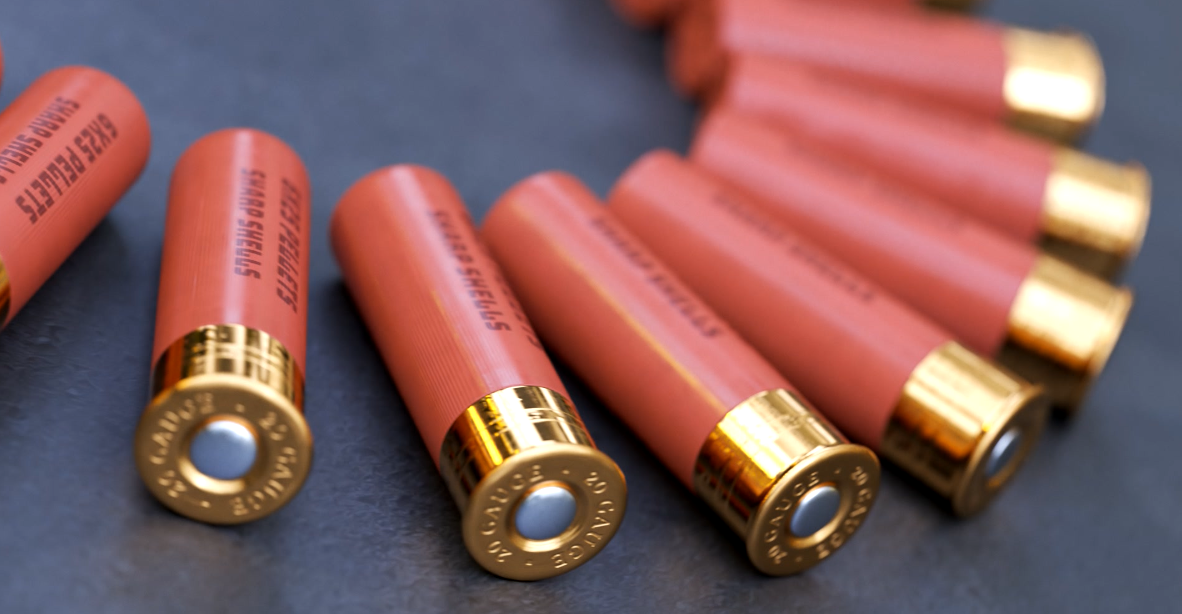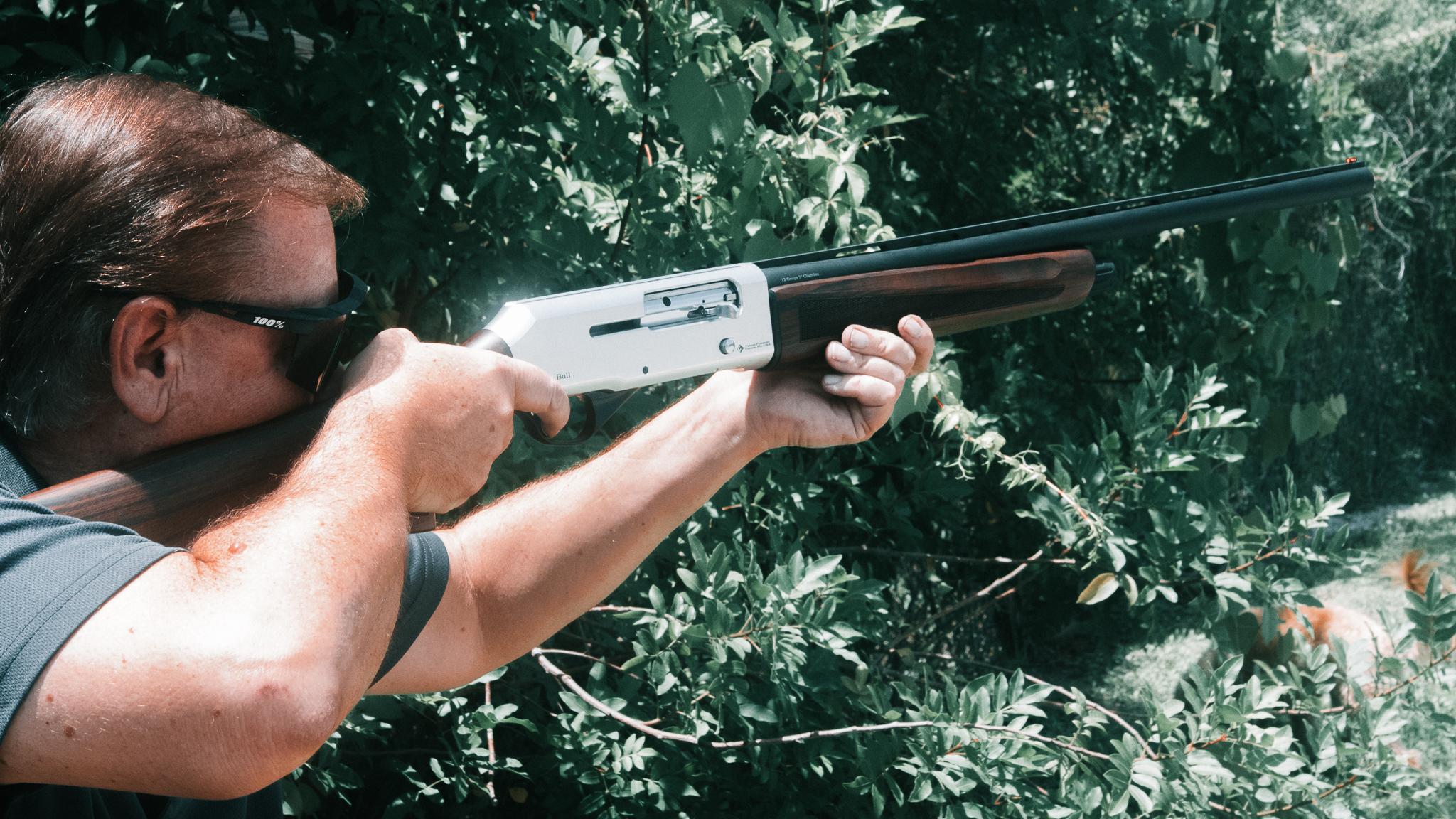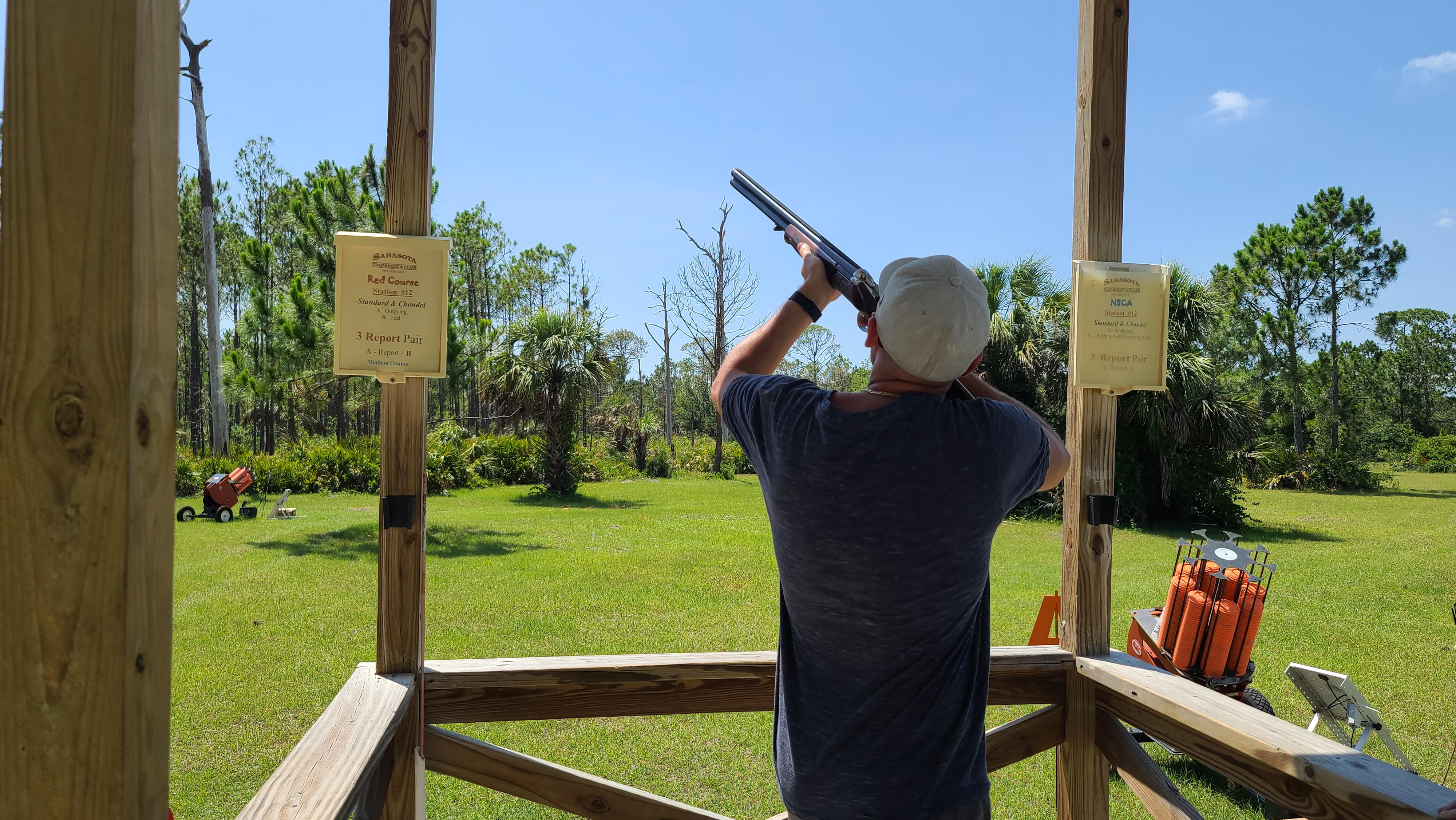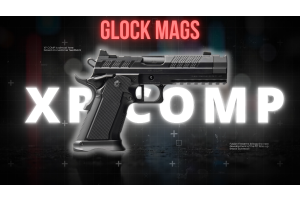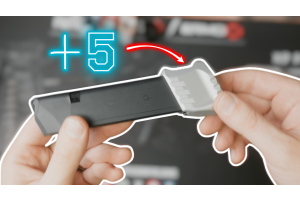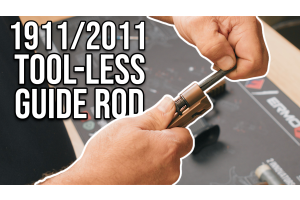12ga vs 20ga: The Ultimate Guide to Choosing the Right Shotgun Gauge
0%
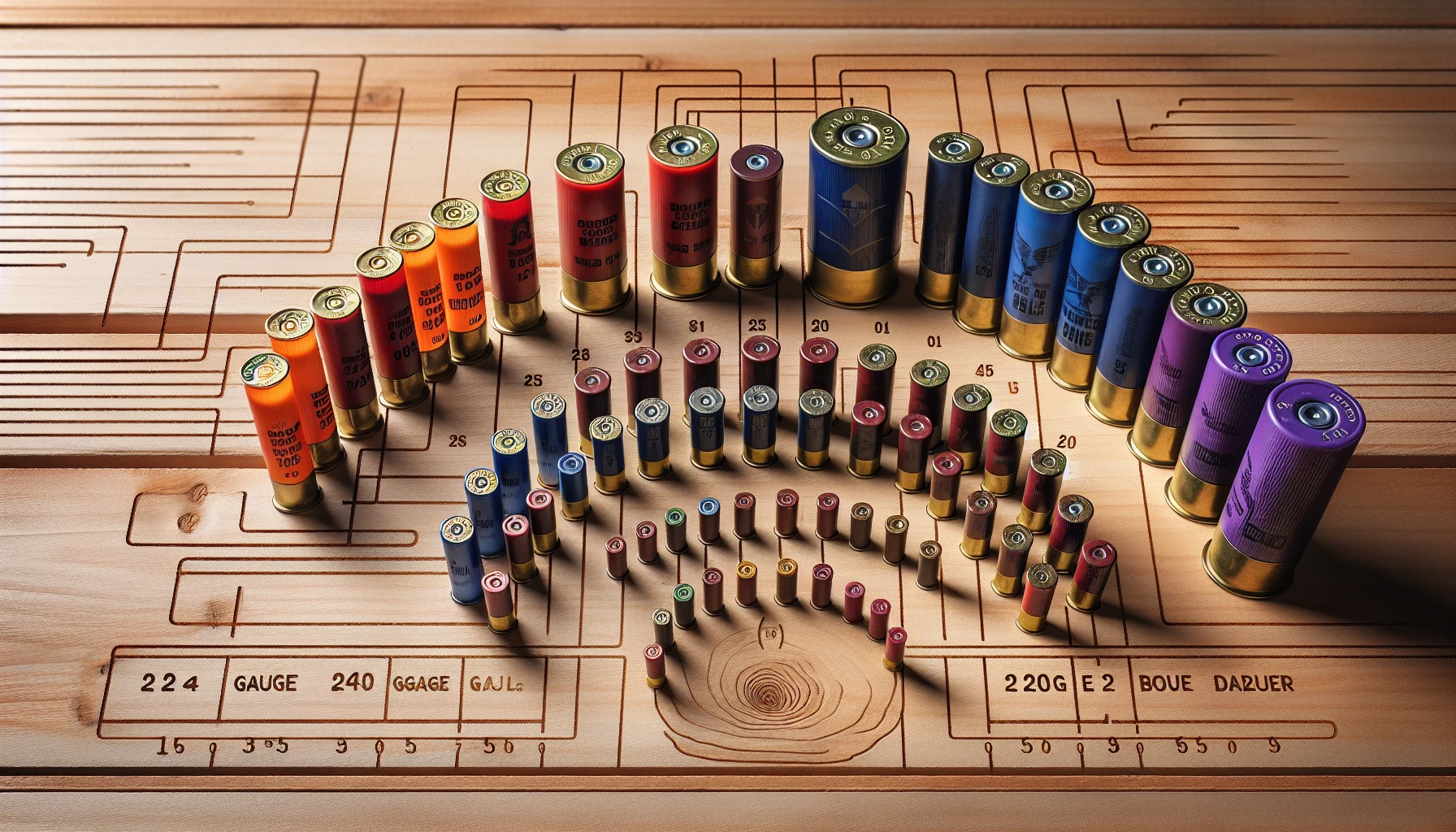
Imagine you’re a beginner, eager to explore the world of hunting or shooting sports. You’ve decided to purchase your first shotgun, but you’re faced with a dilemma: should you choose a 12-gauge or a 20-gauge? Fear not, dear reader, as we unravel the mysteries of these popular shotgun gauges and help you make the best decision for your needs in the great debate of 12ga vs 20ga.
Key Takeaways
-
The gauge system is a method of measuring the diameter of a shotgun’s bore based on the weight of a lead ball that fits precisely in it.
-
20-gauge shotguns typically have lower recoil than 12-gauge, making them ideal for those with less experience handling firearms.
-
When selecting a shotgun gauge for beginners, factors such as recoil, weight and intended use should be taken into account. Experts recommend starting with 20-gauge but trying out different options to find the right fit.
Understanding Shotgun Gauges
A shotgun gauge is a measurement unit indicating the bore diameter of a shotgun. It determines the shell size and shot type to be used in the firearm, impacting the shotgun’s power, recoil, and accuracy, which beginners should grasp.
In the world of shotguns, two gauges reign supreme: the 12-gauge and the 20-gauge. While other gauges exist, the 12 and 20 are the most popular shotgun gauges for various hunting and shooting applications, with twelve gauge shells being the most common choice among enthusiasts.
Thus, we’ll extend our understanding of the gauge system and familiarize ourselves with these two popular options.
The Gauge System
The gauge system is based on the weight of a lead ball that fits precisely in the bore. The gauge of a shotgun is determined by calculating the number of lead balls, or lead shot, of the same diameter as the barrel that would weigh one pound in total. A lower gauge number corresponds to a larger bore diameter, while a higher gauge number corresponds to a smaller bore diameter.
For example, a 12-gauge shotgun has a larger bore diameter than a 20-gauge shotgun, resulting in higher recoil. This difference is significant while considering the shotgun’s handling and performance, particularly for beginners who might be more recoil-sensitive.
Common Shotgun Gauges
The most popular shotgun gauges are:
-
12-gauge
-
20-gauge
-
16-gauge
-
28-gauge
-
.410 bore
They are widely used for shooting sports and activities. The 12-gauge shotgun has a larger bore diameter than the 20-gauge, allowing it to accommodate larger shells and deliver more power. However, the 20-gauge shotgun is lighter and offers very light loads, which can be advantageous in certain situations.
Besides the 12 and 20 gauge, the 16 gauge, 28 gauge, and .410 bore are also utilized for shotguns. These smaller gauges often result in a lighter gun, which can be advantageous for upland hunting or other scenarios where reduced weight is beneficial. Steel shot can be used in these shotguns for various purposes.
Understanding the differences between these gauges is critical in choosing the most appropriate option for your specific use.
Comparing 12-Gauge and 20-Gauge Shotguns
When comparing 12-gauge and 20-gauge shotguns, there are several factors to consider, such as recoil, power, and versatility. The 12-gauge shotgun boasts more power than the 20-gauge, but it also has more recoil, which beginners might find difficult to manage.
The 20-gauge shotgun is significantly lighter than other firearms and features reduced recoil, making it more manageable for new shooters. Each gauge comes with its pros and cons, depending on the intended use, so let’s examine their differences further.
Recoil Comparison
Recoil is a significant factor when choosing a shotgun, especially for beginners who may be sensitive to the kick generated by the firearm. The felt recoil of a 20-gauge shotgun is typically lower than that of a 12-gauge, making it easier to handle and achieve accurate follow-up shots.
Proper firearm handling techniques and recoil-reducing strategies and accessories can help lessen the effects of recoil when shooting a shotgun. However, the reduced recoil of a 20-gauge shotgun is often a significant advantage for beginners, as it allows for a more enjoyable and manageable shooting experience.
Power and Performance
The power and performance of a shotgun are primarily determined by its gauge. The 12-gauge shotgun is more powerful than the 20-gauge, as it can accommodate more pellets of a larger size in its shell and can contain more powder, providing higher power and performance.
However, the 20-gauge shotgun is still a viable option for various applications, such as hunting small game or birds, due to its lighter weight and reduced recoil. The choice between the two gauges will ultimately depend on the specific needs and preferences of the shooter.
Versatility and Use Cases
Both 12-gauge and 20-gauge shotguns offer versatility in various hunting and shooting scenarios. The 12-gauge shotgun is renowned for its power and performance, making it an effective all-in-one solution for hunting, target shooting, and home defense.
Conversely, the 20-gauge shotgun is well-suited for:
-
bird hunting
-
target shooting
-
self-defense
-
hunting both small and large game
As a beginner, it’s important to consider your intended use and handling capabilities when deciding between the 12-gauge and 20-gauge shotguns.
Hunting Applications: 12-Gauge vs 20-Gauge
When it comes to hunting, the choice between 12-gauge and 20-gauge shotguns depends on the specific application and personal preference. Both gauges have their strengths and weaknesses, which can affect their suitability for certain hunting scenarios.
We will examine the performance of 12-gauge and 20-gauge shotguns across various hunting applications, including deer hunting, waterfowl hunting, and upland bird hunting, in this part of the article.
Deer Hunting
For deer hunting, the 12-gauge shotgun is often preferred due to its higher muzzle velocity and extended effective range, providing more stopping power for larger game. The 12-gauge shotgun can also accommodate a variety of ammunition, such as rifled slugs, which offer excellent accuracy at distances up to 100 yards.
However, the 20-gauge shotgun can still be a viable option for deer hunting, particularly for beginners who may prioritize reduced recoil and a lighter firearm. The choice ultimately depends on the shooter’s comfort level and handling capabilities.
Waterfowl Hunting
In waterfowl hunting, the 12-gauge shotgun is often favored due to its increased power and range, allowing hunters to take down ducks, geese, and other waterfowl more effectively. Additionally, the 12-gauge shotgun can utilize non-toxic shotgun shells, such as steel, which are required for waterfowl hunting.
The 20-gauge shotgun, while not as powerful or far-reaching as the 12-gauge, can still be a suitable option for waterfowl hunting, especially for beginners who may prioritize a lighter firearm with less recoil. The choice between the two will depend on the specific needs and preferences of the hunter.
Upland Bird Hunting
For upland bird hunting, including turkey hunting, the 20-gauge shotgun is often the more suitable choice due to its lighter weight and sufficient power. The reduced recoil of the 20-gauge shotgun makes it easier to handle and carry, particularly when traversing dense woods or fields in pursuit of birds like grouse, chukar, quail, and pheasants.
While the 12-gauge shotgun is more powerful, its increased recoil and weight can be a disadvantage in upland bird hunting scenarios where agility and maneuverability are essential. In this case, the 20-gauge shotgun is the preferred option for both beginners and experienced hunters alike.
Target Shooting and Home Defense
Beyond hunting, shotguns are also used for target shooting and home defense applications. Both 12-gauge and 20-gauge shotguns can be effective in these scenarios, depending on the shooter’s skill level, comfort, and preferences.
In this section, we’ll discuss the performance of these two popular shotgun gauges in target shooting and home defense situations.
Target Shooting
The 12-gauge shotgun is generally more accurate than the 20-gauge shotgun for target shooting due to its larger bore and ability to shoot heavier payloads, resulting in more compact shot spreads. However, individual shooting skills and preferences can also influence accuracy.
The 20-gauge shotgun, often considered the same gun as its 12-gauge counterpart, offers improved shootability, lighter weight, and reduced recoil, making it an attractive option for beginners and those who prefer a more manageable shooting experience.
Home Defense
When selecting a shotgun for home defense, important considerations include length, accessories options, and type of ammunition to avoid over-penetration. Both 12-gauge and 20-gauge shotguns can be suitable for home defense, depending on the shooter’s comfort and handling capabilities.
The 12-gauge shotgun is renowned for its power and stopping power, making it a popular choice for home defense. Conversely, the 20-gauge shotgun offers a more manageable shooting experience due to its lighter weight and reduced recoil, making it a viable option for self-defense as well.
Choosing the Right Gauge for Beginners
For beginners, deciding between a 12-gauge and a 20-gauge shotgun can seem overwhelming. Factors like recoil, weight, and intended use are critical considerations while making this decision. In this part, we’ll offer guidance on choosing the appropriate shotgun gauge for beginners, considering these factors and expert advice.
Factors to Consider
When choosing a shotgun gauge for beginners, consider factors such as recoil, weight, and intended use. The 12-gauge shotgun offers greater power and performance, but it also has more recoil, making it more challenging for beginners to manage. The 20-gauge shotgun is notably lighter than other firearms. It also has reduced recoil, making it much easier for new shooters to handle..
Additionally, consider the specific applications in which the shotgun will be used, such as hunting, target shooting, or home defense. The 12-gauge shotgun is more versatile and suitable for various scenarios, while the 20-gauge shotgun is more appropriate for lighter loads and smaller game.
Expert Advice
Experts generally recommend beginners start with a 20-gauge shotgun due to its lighter weight and reduced recoil. The 20-gauge shotgun is versatile and suitable for a range of hunting and shooting activities, making it an excellent choice for those new to the sport.
However, it’s key to try out different shotguns and gauge options to identify the one that feels most comfortable and meets your specific requirements. Remember that individual shooting skills and preferences play a significant role in the effectiveness of a shotgun, so take the time to find the right fit for your needs.
Summary
In conclusion, both 12-gauge and 20-gauge shotguns have their advantages and disadvantages, depending on the intended use and the shooter’s comfort and handling capabilities. The 12-gauge shotgun offers greater power and performance, while the 20-gauge shotgun provides a more manageable shooting experience with less recoil. By considering factors such as recoil, weight, and intended use, you can confidently choose the right shotgun gauge for your needs and embark on a thrilling adventure in the world of hunting and shooting sports.
Frequently Asked Questions
Which is better 12 or 20 gauge shotgun?
For superior performance, 12 gauge is better than 20 gauge shotgun. It offers harder-hitting shot with greater effective distance.
What is a 20 gauge shotgun good for?
A 20 gauge shotgun is ideal for hunting upland game birds such as quail, grouse and mallards. It is also a suitable choice for close to mid-range self defense scenarios when using lead-free birdshot or buckshot.
What's better for ducks 12ga or 20ga?
For duck hunting, the majority of experienced hunters prefer 12 gauge shotguns due to its higher pattern density and superior shot stringing when compared to 20 gauge.
Does a 12 gauge or 20 gauge kick harder?
Overall, a 12-gauge shotgun will typically kick harder than a 20-gauge when comparing the same kinds of loads. Therefore, if you're looking for less recoil, a 20-gauge may be the better choice.
What factors should I consider when choosing a shotgun gauge for hunting?
When choosing a shotgun gauge for hunting, consider factors such as recoil, weight, intended use, hunting application and game species for the best results.


